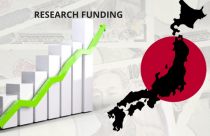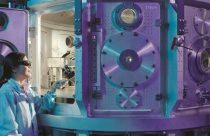Author Accused of Misconduct for “Game-changing” Stem Cell Papers

It’s happened again. A bright, young researcher publishes a breakthrough paper, receives acclaim and adulation. Then questions arise. The work cannot be reproduced, the original data seems suspicious. Rumors of sloppy work, fraud, fabrication of data, circulate throughout the scientific community. This ultimately culminates in denunciations and calls for retraction.
Game Changing Research. Or Not.
The case in hand is that of two papers published early this year by Japanese researcher Haruko Obokata in Nature. The papers claimed that mature animal cells could be transformed into stem cells by a simple technique, basically dipping them in weak acid. Isolating stem cells without destroying embryos would indeed be a breakthrough and Obokata became an instant celebrity in Japan. But no one could reproduce the published work. Moreover, some readers noticed that illustrations in the papers didn’t look right; one seemed to be a superposition of two images, and another looked like an image from Obokata’s doctoral thesis on a different topic. One co-author recommended retraction, and after an investigation, so did the research institute that Obokata worked for. They made their announcement at a news conference on April 1.
The More Things Change…
The trend of scientific misconduct, however, is not new. Some years back, a similar case was reported on cancer biogenesis involving a “protein cascade.” Here again, a young lead researcher teamed up with a senior mentor and a distinguished team of coworkers. A ground breaking paper was published on a hot current topic, garnering the researcher instant fame, and almost instant infamy when the work could not be reproduced. Few people know about this scandal today as a Google search on “protein cascade scandal” wouldn’t turn up anything relevant. No doubt this is because such scandals erupt every few years and the fresh ones replace the old ones in the public’s memory. Although it’s too early to say for sure what’s going on in this case, the signs are ominous. The scenario fits, too well, that of the high profile fake scientific paper.
Lessons Learned
If you are a senior researcher mentoring a promising young scientist, you should be gratified if the protégé makes a breathtaking discovery. After catching your breath, scrutinize the data. Really scrutinize it. Ask to see the originals of all the analytical work. The budding scientist will be glad to oblige, if he’s honest. In case you are the junior researcher, make sure the data is correct before you ask your mentor to check it. If required, reproduce your results so that there are lesser chances of you losing your fame once your paper gets published.
What do you think young researchers need to keep in mind while writing papers? What all measures do the senior mentor need to take to check the authenticity of the data? Please share your thoughts with in the comments section below.









